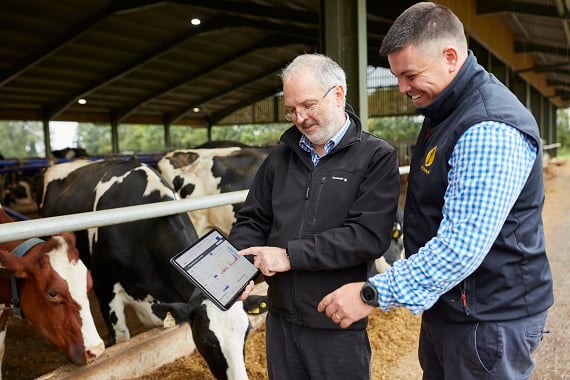Farming & Growing
The future of fuel within agriculture

Tractors and other agricultural machines generally rely on diesel, but it’s hoped that greener alternatives to fossil fuels will help farmers to reduce their impact on the environment, whilst also potentially saving on costs.
Over the next few years, we expect a number of different fuel systems to be trialled on farms. These will each have their own strengths and considerations for implementation. It’s likely that there will also be hybrid systems that aim to offer the best of both worlds as technology matures.
Methane
Tractor manufacturers are working hard to create alternatives to diesel-powered machines. One solution could be to use methane, the main ingredient in natural gas, which can be burned to use as fuel. This can be much greener than standard diesel if it’s derived from renewable sources.
In fact, methane is already being used today. New Holland developed the world’s first 100% methane-powered production tractor in 2013 and is starting full scale production. Some early units are already being used by farming customers.
David Redman, Tractor Product Specialist at CNH, says: “Methane offers the same levels of power as diesel, but at running costs of up to 30% lower and an 80% reduction in emissions".
Critics, on the other hand, point out that methane is highly flammable and hard to store. Methane isn’t just a fuel, but also a potent greenhouse gas that contributes to climate change, if it enters the atmosphere which could happen through fuel tank leaks or it could escape when re-fuelling. However, David points out that New Holland’s methane-powered tractor tanks will shut down if it senses a leak.
Electric powered vehicles
Manufacturers including John Deere are developing tractors that use batteries and motors in place of pumps and engines. Chris Wiltshire, Tactical Marketing Manager at John Deere, explains: “We’re looking at all power sources, but it’s clear that we will see increased electrification of machinery in farming going forward.” Electrification will come in the form of battery electric technology or hybrid electric technology which is now available is some larger tractor models.
Although technology is constantly improving, electric battery-powered agricultural machinery is currently limited by the energy density of batteries versus traditional fuels.
Hydrogen
Hydrogen, a green fuel whose sole by-product is steam, is also an option. One benefit of hydrogen combustion vehicles is that they use similar technology to existing petrol / diesel systems. JCB adds that the fuel is also robust and cost-effective, and it could be integrated into all forms of powertrain.
On the other hand, critics say that hydrogen isn’t as efficient as fully electric systems. This is because it’s expensive and a lack of infrastructure makes it challenging and costly to store and transport.
Replacing diesel
A wide range of modern vehicles, generators, construction machinery and industrial power systems may be able to use Hydrotreated Vegetable Oil (HVO) fuel as a replacement to diesel.
HVO’s raw material is a mixture of vegetable oils and waste fats which are hydrotreated to create a bio-based hydrocarbon renewable diesel. You may have noticed some fast food chains running their commercial fleets on HVO fuels.
HVO immediately reduces air pollution without costly engine modifications, what’s more, it’s zero sulphur and zero aromatic status makes it an attractive high-quality alternative. Additional cost savings can also be made as there are reduced maintenance costs too. Finally, it goes without saying that you should check with your vehicle manufacturer before transitioning to HVO to make sure it's approved and doesn't affect any warranty.
If you’re thinking of adopting new technology on your farm, we’d encourage you to speak to your local agency office, either by requesting a call back or by finding your local agency office.


